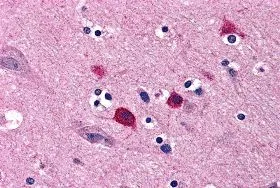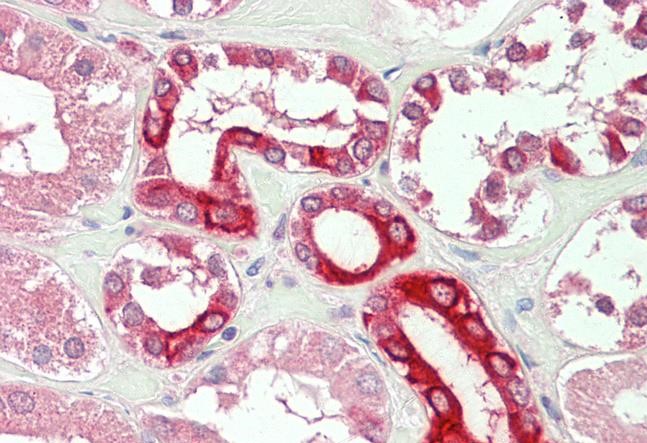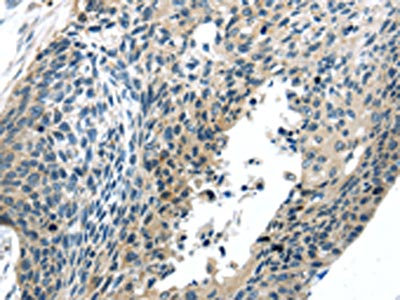
IHC-P analysis of human brain tissue using GTX16981 Bok antibody. Working concentration : 5 μg/ml
Bok antibody
GTX16981
ApplicationsELISA, ImmunoHistoChemistry, ImmunoHistoChemistry Paraffin
Product group Antibodies
ReactivityHuman
TargetBOK
Overview
- SupplierGeneTex
- Product NameBok antibody
- Delivery Days Customer9
- Application Supplier NoteIHC-P: 5 microg/mL. *Optimal dilutions/concentrations should be determined by the researcher.Not tested in other applications.
- ApplicationsELISA, ImmunoHistoChemistry, ImmunoHistoChemistry Paraffin
- CertificationResearch Use Only
- ClonalityPolyclonal
- Concentration1 mg/ml
- ConjugateUnconjugated
- Gene ID666
- Target nameBOK
- Target descriptionBCL2 family apoptosis regulator BOK
- Target synonymsBCL2L9, BOKL, bcl-2-related ovarian killer protein, BCL2 related ovarian killer, BOK, BCL2 family apoptosis regulator, bcl-2-like protein 9, bcl2-L-9, hBOK
- HostRabbit
- IsotypeIgG
- Protein IDQ9UMX3
- Protein NameBcl-2-related ovarian killer protein
- Scientific DescriptionThe protein encoded by this gene belongs to the BCL2 family, members of which form homo- or heterodimers, and act as anti- or proapoptotic regulators that are involved in a wide variety of cellular processes. Studies in rat show that this protein has restricted expression in reproductive tissues, interacts strongly with some antiapoptotic BCL2 proteins, not at all with proapoptotic BCL2 proteins, and induces apoptosis in transfected cells. Thus, this protein represents a proapoptotic member of the BCL2 family. [provided by RefSeq, Sep 2011]
- ReactivityHuman
- Storage Instruction-20°C or -80°C,2°C to 8°C
- UNSPSC12352203






